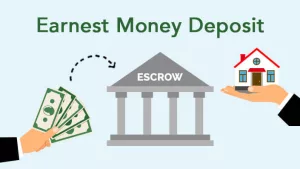How much a Home Appraisal cost in NYC?
Go Back To Previous Page around $300, while one for a property in an expensive city could exceed $1,000. Here’s what you need to know about getting a property appraised.
around $300, while one for a property in an expensive city could exceed $1,000. Here’s what you need to know about getting a property appraised.You can obtain an online home appraisal, but it may not always be the best option. Understanding the components of appraisals can help homeowners justify and comprehend the cost. If a home appraisal is necessary for refinancing or selling a house, it’s essential to understand what you’re paying for. This article explains the services a home appraiser provides and the expected cost of the appraisal.
What Is A Home Appraisal?
An appraisal for a home involves several services a licensed appraiser provides to determine the property’s value. The appraiser begins with a visual inspection of the property to take note of its unique features and conditions. Following this, the appraiser analyzes the local real estate market by comparing the property to recently sold homes. This information is then compiled into a detailed report explaining the findings.
Appraisers use three standard valuation methods: the sales comparison approach, the cost approach, and the income capitalization approach. They are trained experts who assess a property’s quality to determine its value. They are licensed, qualified, and insured for the job. Therefore, their services may seem expensive.
The Base Price Of A Home Appraisal
A home appraisal includes certain services that always remain consistent. However, the size of your house, the accessibility of the attic or basement, and the exterior can impact the time it takes for the appraiser to complete their assessment, thus affecting the cost.
Generally, a single-family home appraisal costs between $300 and $450. In areas with higher labor costs, such as expensive cities, this range can increase from $500 to $800. Understanding the cost of labor in your area or the standards set by local home appraisers regarding property accessibility can help homeowners better prepare for their appraisal fees.
If you want to gauge your property’s market position without immediately engaging an appraiser, consider using home value estimators to determine its current value.
Who Pays For A Home Appraisal?
In a real estate transaction, the buyer typically covers the home appraisal cost, usually included in their closing costs. However, the seller is responsible for arranging the appraiser’s access to the home. Sometimes, the seller may agree to pay for the appraisal, especially in a buyer’s market, but this is uncommon.
When refinancing a mortgage, the homeowner, the borrower, pays for the appraisal as the first step. The lender selects the appraiser, and the homeowner is usually responsible for coordinating with the appraiser. Although the appraisal cost may seem burdensome, it is a small price compared to the potential savings from refinancing.
What Influences Appraisal Cost?
Home appraisals typically cost between $300 and $450 or $500 and $800, although in some instances, costs may exceed these figures. Labor costs are the primary determinant of appraisal expenses, which vary significantly between urban and rural properties. For example, the cost of an appraisal in New York City is generally higher than that in rural Pennsylvania.
Other factors that impact appraisal expenses besides location include the size of the property, its accessibility, and distinctive features. More significant properties with extensive square footage necessitate more appraisal time, resulting in higher costs. Complex roof spaces, inaccessible basements, attics, or property damage can also prolong the appraisal process. Unique room configurations, substantial square footage, and high accessibility can influence appraisal costs.
Nevertheless, most home appraisals typically align with the price above ranges based on the property’s location.
How Accessibility Plays a Role
We want to clarify how accessibility affects the cost of a home appraisal because it can be a huge factor in certain areas or even at certain times of the year.
In northern areas, snow can impact a property’s accessibility and prolong the appraisal process, raising its cost. This increase is even more significant on large properties with multiple buildings, complicated yard designs, and other complex structures.
Basements and attics can also be difficult to appraise, depending on accessibility. They can prolong the home appraisal process. Even damage to the house or clutter can impact the appraisal.
Average Cost Of Home Appraisal Bottom Line
Home appraisals are a crucial part of the home buying and refinancing process. Licensed appraisers assess the value of homes, but the cost of their services can vary. For single-family homes in typical suburban areas, the cost can range from $300 to $450, while in denser city areas, it can range from $500 to $800.
These costs can be influenced by factors such as house damage, complex rooms, ample square footage, and accessibility, including weather conditions. Making the property accessible is essential to lowering the appraisal cost.


